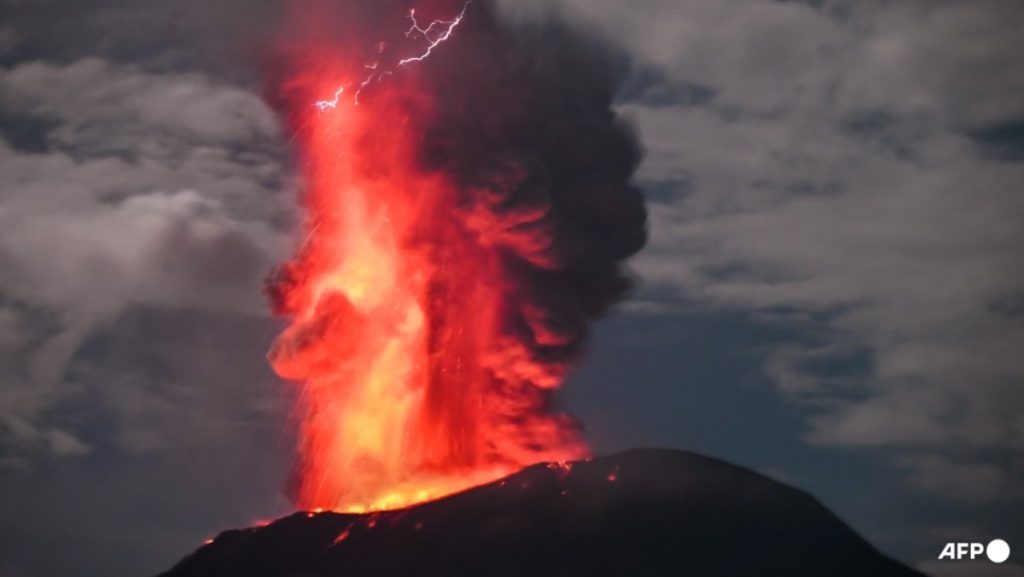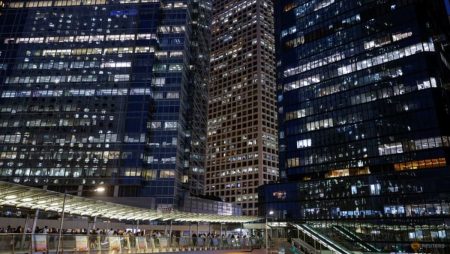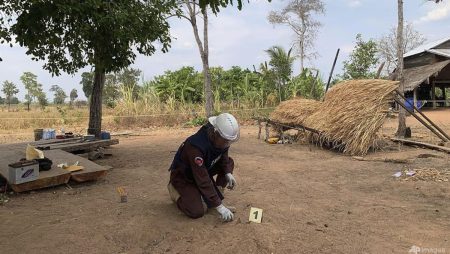The eruption of Mount Ibu on the remote Indonesian island of Halmahera has sparked a complex interplay between natural disaster and human resilience, highlighting the profound impact of ingrained cultural familiarity with volcanic activity. While authorities issued urgent evacuation orders for approximately 3,000 residents across six villages in the vicinity of the volcano, the overwhelming response has been one of resistance, with thousands choosing to remain in their homes despite the potential dangers. This defiance stems from a deep-rooted acceptance of Mount Ibu’s frequent eruptions, a phenomenon woven into the fabric of their daily lives. The residents’ familiarity with the volcano’s behavior, coupled with a perceived manageable risk, has led to a widespread reluctance to abandon their homes and livelihoods.
The eruption, which commenced on Wednesday, propelled a towering column of smoke and ash 4 kilometers into the sky, a dramatic visual underscoring the volcano’s power. Indonesia’s Geological Agency immediately elevated Mount Ibu’s alert status to the highest level, signifying the potential for a significant and potentially hazardous eruption. This prompted local authorities to initiate evacuation procedures, emphasizing the urgency of relocating residents to safer areas. However, their efforts have been largely met with refusal, a testament to the residents’ strong attachment to their land and their unique perspective on the volcano as a constant, albeit sometimes volatile, presence in their lives. Only one village, the closest to the volcano’s crater, has complied with the evacuation order, a stark contrast to the remaining five villages where residents have opted to stay.
The divergence between official recommendations and local responses underscores the complexities of disaster management in regions with a long history of volcanic activity. The residents’ deep-seated connection to their land and their intimate understanding of Mount Ibu’s behavior have shaped their perception of risk, creating a cultural buffer against the fear and urgency that typically accompany such natural events. For many, the volcano is not perceived as an imminent threat, but rather as a predictable and manageable part of their environment. Their decision to remain in their homes, while seemingly defiant, reflects a carefully calibrated assessment of the situation based on generations of experience living in the shadow of the volcano.
The residents’ narratives reveal a nuanced understanding of Mount Ibu’s activity. They speak of frequent, smaller eruptions as a regular occurrence, a rhythmic pulse of the earth that has become integrated into their daily routines. While acknowledging the increased intensity of this week’s eruptions, they maintain a sense of composure and a belief in their ability to cope with the volcano’s unpredictable nature. Statements from residents like Milka Sehe, a 43-year-old from Todoke village, highlight this sentiment. Sehe’s assertion that they are “accustomed to the eruptions of Mount Ibu” and have not experienced any direct impact on their village reflects a prevailing attitude of resilience and a deeply ingrained familiarity with the volcano’s behavior.
This familiarity, however, does not equate to a complete disregard for safety. There is an undercurrent of concern and anxiety, particularly among those who have witnessed the escalating intensity of the recent eruptions. Rista Tuyu, a 32-year-old resident of Tuguis village, articulates this duality, expressing her hope for the volcano to subside while simultaneously acknowledging the underlying apprehension shared by the community. Her observation that eruptions can occur three to four times a week, with this week’s being particularly strong, underscores the residents’ capacity to differentiate between typical volcanic activity and potentially more dangerous events. This nuanced understanding, passed down through generations, informs their decisions and allows them to gauge the level of risk they are willing to accept.
The situation at Mount Ibu presents a significant challenge for disaster management authorities. While the scientific assessment emphasizes the potential for a major eruption and the consequent need for evacuation, the local population’s reluctance to leave their homes complicates the implementation of safety measures. This clash between expert advice and local knowledge necessitates a sensitive and culturally informed approach to disaster preparedness. Engaging with the community, understanding their perspectives, and building trust are crucial for bridging the gap and ensuring the safety of those living in the volcano’s shadow. The challenge lies in finding a balance between respecting the residents’ deep connection to their land and their traditional knowledge, while also emphasizing the potential dangers of remaining in a high-risk zone.










